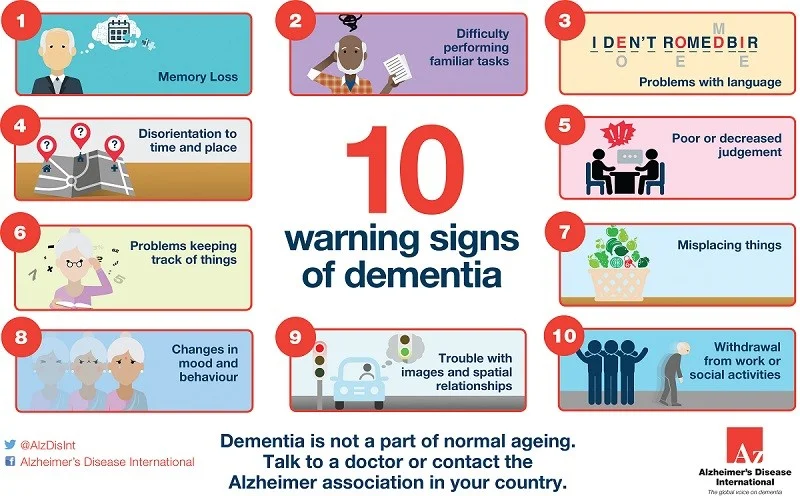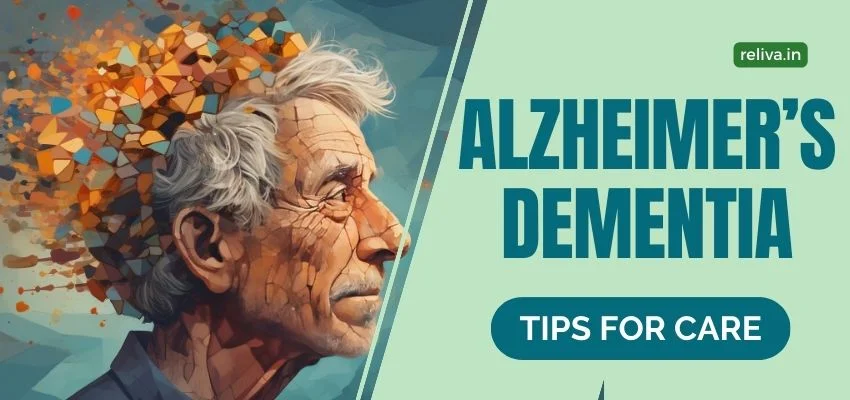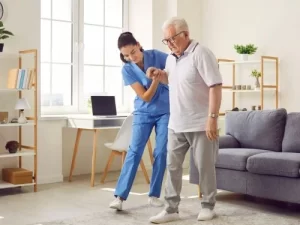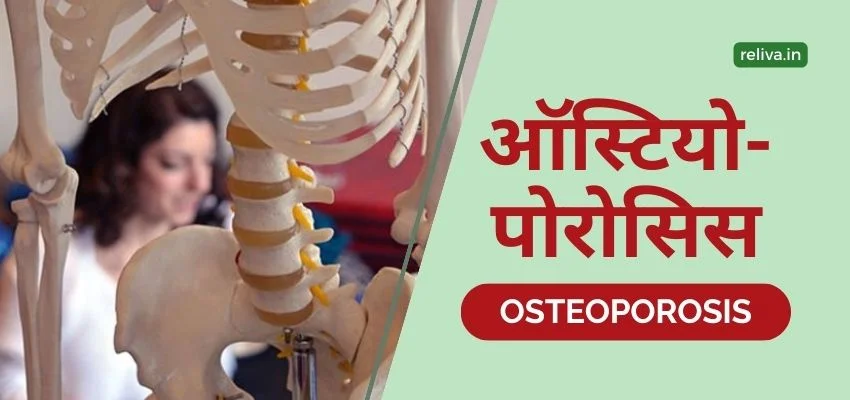Alzheimer’s & Dementia have gained increased acceptance, which means better care can be offered to patients of Alzheimer’s Disease and Dementia to improve their quality of life. Medical research has shown that regular exercise may delay a decline of health people who have Alzheimer’s disease by improving their strength, balance, and walking ability. ReLiva physiotherapists have put together this post detailing all about Alzheimer’s and Dementia and tips for care of these patients at home.
What is Dementia & Alzheimer’s Disease?
Dementia, a brain condition that causes problems with thinking and memory, is a major worldwide health problem among older people. Alzheimer’s Disease contributes approximately 70% of all Dementia cases. Epidemiological studies in India suggest about 1/3rd of the prevalence of Dementia & Alzheimer’s Disease (AD) as compared to The United States and other developed countries.
What age does Alzheimer’s start?
Incidence of AD increases sharply after age 65 years for age.
However, it can happen in individuals as soon as their 40s or 50s. This is called early onset Alzheimer’s. This sort of Alzheimer’s affects around 5 percent of the population with the condition.
How do you care for an Alzheimer’s patient at home?
The task of being caregiver for a loved one with Alzheimer’s or Dementia, can be extremely daunting. One may have to experience behavioral problems such as wandering, aggressiveness, hallucinations, or sometimes sleeping and eating difficulties.
Tips for the Caregiver for Alzheimer’s
By learning how to make changes in the caring atmosphere, you can improve the Quality of life for both the patient and your own self.
- Try to put yourself in the person’s situation. Look at your loved one’s body language & imagine what he/she might be feeling or trying to express.
- Are the patient’s needs being met? Is the patient hungry, thirsty or in pain?
- Make necessary changes in the home environment or atmosphere to comfort the patient.
- Create a calm & soothing environment. Keep yourself calm and stop being anxious or upset in response to their behavioral problems as it can increase patient’s stress or agitation.
- Establish a daily routine for the patient such as a schedule for bathing; as all these tasks would be difficult and can be done only when the patient is very calm and agreeable.
- Expect things to take longer than they used to and give step by step instructions when you ask your loved one to do something.
- Encourage them to participate in physical activity or Exercises as it is a great way to reduce stress, improve balance and coordination and other activities of daily routine.
Is there any treatment for Alzheimer’s?
Despite there is no known cure for Alzheimer’s, your doctor may still recommend you the following to help ease AD symptoms and slow down the progression of the condition.
- Medication, and
- Changes in lifestyle: formulate strategies to help you or your loved one:
- focus on tasks
- limit confusion
- avoid confrontation
- get enough rest every day
- stay calm (Ask your physiotherapist for exercises that relieve stress)
- improve or maintain the quality of life
Regulated and supervised exercises during Physiotherapy can help the patient of Alzheimer’s disease in several ways, to attain most of the above goals.
Every person is unique & will have different levels of ability and activities they enjoy. If you want to find out more about suitable exercise & physical activities, call us at +91 9920991584 and find out about a Physiotherapist near you.
What is the best treatment for Alzheimer?
How does physiotherapy help dementia? Regulated and supervised exercises during Physiotherapy can help the patient of Alzheimer’s disease in several ways, some of which are listed below:
- Exercise is an excellent stress reliever and it can give solutions to most of the problems such as aggression, wandering and lack of sleep or sleep disturbance.
- Physiotherapy improves muscle strength, mobility, balance and Co-ordination and ensures proper training for activities of daily living such as eating, dressing, etc.
- Physiotherapy is crucial for patients in pain and reduces symptoms with use of Electrotherapy.
- Physiotherapy can assess one’s ability to walk safely, the risk of falls & other functional tasks. The therapist will develop a treatment program, including exercise, to help maintain your loved one’s current abilities.
- Even in late stages of Alzheimer’s, physiotherapy can help prevent & manage shortening of the muscles or joints.
- Physical activity creates valuable opportunities to socialise with others & can help improve & maintain a person’s independence which is beneficial both to the people with Alzheimer’s & Dementia & also to their Caregivers.
- Several studies show that exercises performed for 15-30 minutes, thrice a week, prove to be beneficial for patients with Alzheimer’s disease.
“A person does not need to remember having engaged in an Exercise Program to reap the benefits of Exercise- they just have to participate!”
How does Physiotherapy slow down the symptoms of Alzheimer’s and Dementia?
Regular physical activity throughout the stages of Alzheimer’s has been shown to improve:
- Balance
- Blood flow to the brain
- Endurance
- Flexibility
- Muscle strength
Research has shown that physical therapy can also slow the symptoms of Alzheimer’s as well as Dementia in these four ways:
1. Physiotherapy decreases aggression and improves mood.
Regular activity has been repeatedly shown to improve mood and reduce aggression[1]. One study found that an hour of therapy each week for 12 weeks drastically reduced depression [2]. The therapy focused on balance, endurance, flexibility and strength training.
2. Physiotherapy increases mobility and strength.
Alzheimer’s disease often affects balance and can lead to a high risk for falls. Regular physical therapy helps to keep bones and muscles strong as coordination declines. An added bonus of regular physical therapy is improved sleep [3].
3. Physiotherapy helps maintain independence through activities of daily living (ADLs).
Being able to take care of yourself is an important way to be independent. Daily activities like bathing, dressing, eating and toileting can become difficult with Alzheimer’s. A physical therapist will provide opportunities to practice and strengthen the ability to keep doing the daily activities.
4. Physiotherapy aids slowing the loss of memory.
Loss of memory is a great source of frustration for the person with Alzheimer’s and their loved ones. Physical therapy involves regular physical activity that improves the flood of blood to the brain.
Need Help with your Elderly?
Physiotherapy can help!
What are the first sign of Alzheimer’s?
Alzheimer’s is a progressive disease of the brain that slowly impairs memory and cognitive function. It is characterized by decline and loss of multiple cognitive functions such as loss of memory and atleast one of the following:
- Loss of Ability to understand (Aphasia): for example, Inability to respond to “Your daughter is on the phone”.
- Loss of Ability to perform complex tasks of daily routine (Apraxia): for example, Dressing, Bathing etc.
- Loss of ability to plan, organise, execute normal activities of daily living: for example, going shopping etc.
How does Alzheimer’s progress?
Alzheimer’s is a progressive disease and its symptoms will gradually worsen over time which we can identify in seven different stages:
- No symptoms at this stage, but an early diagnosis based on family history can be done.
- The earliest symptoms i.e. affection of memory starts to appear.
- Mild physical and mental impairments appear, such as reduced memory and concentration. These may only be noticeable by someone very close to the person.
- Alzheimer’s is still mild but often diagnosed at this stage. Memory loss and the inability to perform daily living activities is obvious.
- Symptoms are moderate to severe and the patient will require help from loved ones or caregivers.
- A person with Alzheimer’s may require help with basic tasks at this stage, such as eating and dressing up.
- The most severe and final stage of Alzheimer will include loss of speech and facial expressions.
Is there a difference between Dementia and Alzheimer’s?
Dementia is a group of symptoms that affects mental cognitive tasks such as memory and reasoning. It is a brain related disorder caused by diseases and other conditions. Alzheimer’s Disease happens to the most common type of Dementia.
What causes Dementia?
Dementia may be caused by a variety of reasons with Alzheimer’s being the most common one. The causes of Dementia often include:
- Alzheimer’s Disease
- Stroke,
- Thyroid issues,
- Vitamin deficiencies,
- Reactions to medicines and
- Brain tumors
How quickly does Alzheimer’s Dementia progress?
The symptoms of Alzheimer’s disease worsen over time, although the rate at which the disease progresses varies. On average, a person with Alzheimer’s lives four to eight years after diagnosis, but can live as long as 20 years, depending on other factors.
What are the 10 warning signs of Dementia?
Dementia is not normal ageing. You could identify the onset of Dementia with the following ten warning signs:
- Memory Loss
- Difficulty performing familiar tasks
- Problem with language sets in
- Disorientation to time and place
- Poor or decreased judgement
- Problems keeping track of things
- Misplacing things
- Changes in mood and behavior
- Trouble with images and spatial behavior
- Withdrawal from social activities

Can you test yourself for Alzheimer’s?
There is no specific conclusive test for Alzheimer’s disease. To diagnose Alzheimer’s dementia, doctors evaluate your signs and symptoms and conduct several tests including the following:
- Psychological status test. This may be done to survey transient memory, long term memory, and orientation to place and time. The questions may include:
- what day it is
- who the president is
- to remember and recall a short list of words
- Physical examination. This may include your blood pressure, pulse, body temperature and sometimes urine or blood test too.
- Neurological exam to rule out other possible diagnoses, for example, Parkinson’s or stroke. In this exam, they will check your reflexes, muscle tone, and speech.
- Brain imaging studies may be conducted to include the following:
- Magnetic resonance imaging (MRI). MRIs can help pick up key markers, such as inflammation, bleeding, and structural issues.
- Computed tomography (CT) scan. CT scans take X-ray images which can help your doctor look for abnormal characteristics in your brain.
- Positron emission tomography (PET) scan. PET scan images can help your doctor detect plaque buildup. Plaque is a protein substance related to Alzheimer’s symptoms.
- Blood tests to check for genes may also be done to indicate if you have a higher risk of Alzheimer’s disease.
Can you prevent Alzheimer’s?
Exactly like there’s no known cure for Alzheimer’s, there are no absolute preventive measures either. Researchers are somehow focusing on overall healthy lifestyle habits as ways of preventing cognitive decline.
The following measures may help prevent:
- Quit smoking.
- Exercise regularly.
- Try cognitive training exercises.
- Eat a plant-based diet.
- Consume more antioxidants.
- Maintain an active social life.
Keep reading about the latest developments in the field and stay updated. You could click on the subscribe button below and start your journey right away, to stay in tune with the latest in the field of Movement and Recovery and handy tips to beat pain and injury.
Need Help with your Elderly?
Physiotherapy can help!
Related Reading:
Parkinson’s disease and recovery
This article is based on inputs from Dr Bini Thomas (PT) and Dr Pooja Sapte (PT).
Dr Bini specializes in caring for patients with neuro deficits while Dr Pooja specializes in caring for the musculoskeletal disorders. Their combined knowledge to the ReLiva pool bring a holistic approach to caring for patients of Alzheimer’s and Dementia across ReLiva clinics in Mumbai, Navi Mumbai, Thane & Pune.
Scientific References:
1 Exercise Interventions for Dementia and Cognitive Impairment: The Seattle Protocols; Linda Teri, PhD, Rebecca G. Logsdon, Ph.D., and Susan M. McCurry, Ph.D.; J Nutr Health Aging. 2008; 12(6): 391–394. doi: 10.1007/bf02982672
2 Effect of Exercise on Mood in Nursing Home Residents With Alzheimer’s Disease; Christine L. Williams, DNSc, APRN, BC and Ruth M. Tappen, EdD, RN, FAAN; Published in final edited form as: Am J Alzheimers Dis Other Demen. 2007; 22(5): 389–397. doi: 10.1177/1533317507305588
3 Williams CL, Tappen RM. Effect of exercise on mood in nursing home residnets with Alzheimer’s disease. Am J Alzheimers Dis Other Demen. 2007;22(5):389–397. [PMC free article] [PubMed] [Google Scholar]






